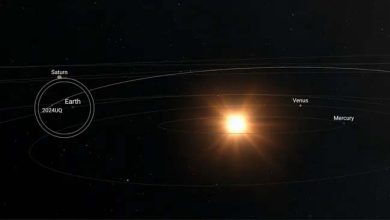Why are gravitational waves important, what does science say

In recent years, the world’s astronomers have been more inclined towards the study of gravitational waves. Through these waves, they are hoping not only to find solutions to the answers related to black holes that have puzzled them for decades, but also to confirm concepts such as the mysterious dark matter, dark energy. Only last month, scientists confirmed the spread of giant waves of gravitational waves throughout the universe. Due to which interest in studies has increased in them. But are gravitational waves really that important? What does science say about this?
What are Gravitational Waves?
Gravitational waves are tiny ripples in the fabric of spacetime that travel at the speed of light. The concept of their existence was first given by Henri Poincaré in 1905 and then Albert Einstein gave his idea in the general theory of relativity, which made them very popular. They could be indirectly observed in 1980. But their existence could be confirmed only after a hundred years.
behavior of these waves
Einstein postulated that gravitational waves behave in the same way as the surface of water behaves under the influence of a force that produces waves. Gravitational waves also affect space-time in a similar way. Thus matter produces the effect of gravity in which the space warp and mass form the body. But these waves are comparatively very weak and their measurement is very difficult.
no effect on humans
When massive bodies in space move with rapid acceleration. They create invisible but very fast movements in space, called gravitational waves. In June 2023 these waves spread very effectively throughout the universe. But as mentioned these waves are very weak and their effect on us humans is almost negligible.
Invisible and almost imperceptible waves!
We can neither see nor practically feel these waves. Michael Kramer, director of Germany’s Max Planck Institute for Radio Astronomy, says that whenever gravitational waves pass through us and everything in between, they compress and stretch our bodies. This change in our body is exactly the size of a neutron, which we cannot even feel.
what are their sources
Traveling at the speed of light, these waves can compress and expand everything in their path, so we can’t catch them without some very sensitive and advanced equipment. Sources of these waves include non-uniform explosions of stars, supernovae, systems of massive binary stars or binary systems of black holes, black hole mergers, neutron star mergers, etc. The waves emitted can be detected by instruments.
But why study gravitational waves?
Gravitational waves could answer many questions that we haven’t been able to find by studying electromagnetic waves and other methods, including the most entangled black holes. These can provide information about dark matter because dark matter is unaffected by electromagnetic waves, but also affects gravity and gravitational waves. Similarly, gravitational waves can answer many questions like supermassive black holes, their origin, their supermassive size.
what are their sources
Traveling at the speed of light, these waves can compress and expand everything in their path, so we can’t catch them without some very sensitive and advanced equipment. Sources of these waves include non-uniform explosions of stars, supernovae, systems of massive binary stars or binary systems of black holes, black hole mergers, neutron star mergers, etc. The waves emitted can be detected by instruments.
In recent years, the world’s astronomers have been more inclined towards the study of gravitational waves. Through these waves, they are hoping not only to find solutions to the answers related to black holes that have puzzled them for decades, but also to confirm concepts such as the mysterious dark matter, dark energy. Only last month, scientists confirmed the spread of giant waves of gravitational waves throughout the universe. Due to which interest in studies has increased in them. But are gravitational waves really that important? What does science say about this?
What are Gravitational Waves?
Gravitational waves are tiny ripples in the fabric of spacetime that travel at the speed of light. The concept of their existence was first given by Henri Poincaré in 1905 and then Albert Einstein gave his idea in the general theory of relativity, which made them very popular. They could be indirectly observed in 1980. But their existence could be confirmed only after a hundred years.





